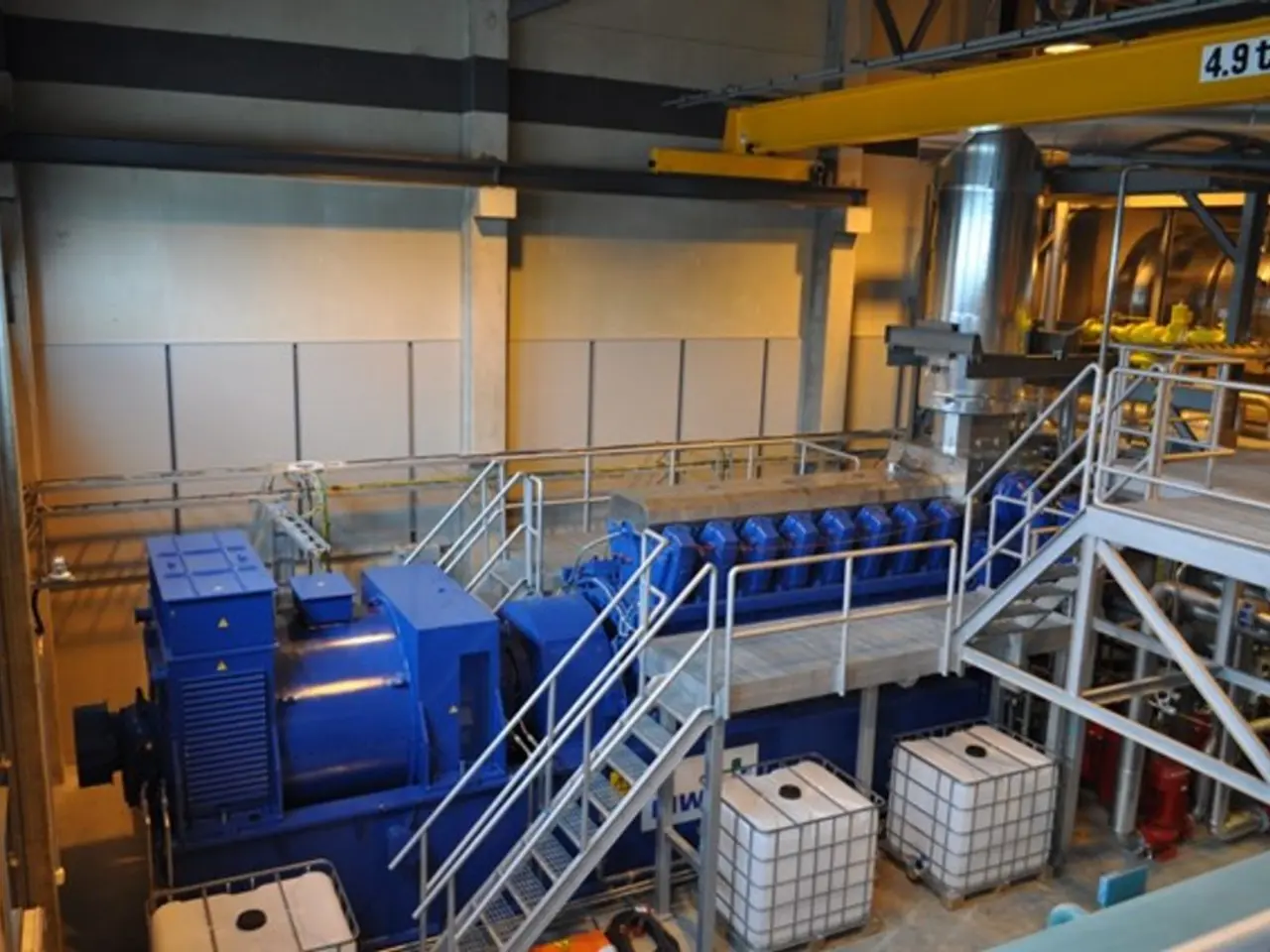US production of transmission technology is facing challenges
TS Conductor Delays U.S. Factory Opening Amid Tariff Uncertainty
TS Conductor, a rapidly growing company specialising in advanced conductors for high power transmission lines, is facing challenges due to the ongoing tariff disputes. The company, founded in 2018, had initially planned to construct a factory in Michigan but later changed the location to South Carolina.
The factory, which is expected to employ around 500 direct employees, is focused on producing advanced conductors that feature a carbon fiber composite core, wrapped in a layer of aluminum. This innovative design solves many inherent limitations of traditional conductors, making the products highly sought after in the growing manufacturing hub of Savannah, Georgia, where the factory is located.
However, the 25% tariff on Canadian aluminum is having a major impact on TS Conductor's operations. Currently, around 90% of the aluminum used by the company is imported, mainly from Canada. The tariffs have led to increased costs, and as a result, TS Conductor is holding up major purchasing decisions.
In an effort to mitigate these costs, the company is considering importing most of the manufacturing equipment from China. This decision, however, comes with its own set of challenges, as finding skilled manufacturing talent in the U.S. remains a struggle.
To help alleviate some of these challenges, TS Conductor won a grant from the Department of Energy's Office of Manufacturing and Energy Supply Chains to construct the factory in the U.S. The $28.2 million DOE grant was intended to support the manufacturing of conductors for high power transmission lines, but it is now on hold due to federal funding uncertainty.
The company is still committed to starting production in the South Carolina facility this fall, but is targeting late December due to tariff disruptions and federal funding uncertainty. The new schedule is aggressive and depends on major equipment purchasing decisions.
In a bid to attract talent and reduce costs, South Carolina offered a "very generous incentive package" to TS Conductor, including funding for recruiting and training new workers. Despite these incentives, the company may scale back its investment in the more expensive, large manufacturing equipment for the large conductors without the DOE's support.
Initially, TS Conductor had planned to make their South Carolina factory their "export hub", selling excess capacity abroad. However, retaliatory tariffs may dampen demand for American-made transmission tech, potentially impacting the company's growth plans.
The U.S. government has not yet made a finalized commitment to finance TS Conductor's second manufacturing site in South Carolina, but discussions about potential support are ongoing. Huang, the company's founder, is hoping for more certainty about the final form of Trump's so-called Liberation Day tariffs to make informed decisions about the future of the company.
Despite these challenges, TS Conductor has already turned a profit at five years old and continues to innovate in the field of advanced conductors. The company's resilience and adaptability in the face of these challenges are testament to its potential for continued growth and success.
Read also:
- Development of Restaurant Apps: Expenses and Essential Elements
- Time is of the essence
- European transportation's sustainability and competitiveness rely on a "green industrial agreement" that serves the interests of both corporations and residents, as discussed in an Editorial from August 2024.
- Indian Oil Corporation's Panipat Refinery secures India's inaugural ISCC CORSIA accreditation for Sustainable Aviation Fuel production




